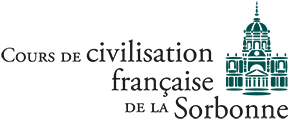Learning French is not limited to memorizing grammatical rules or enriching vocabulary. To express oneself with ease, it is essential to master pronunciation, an often neglected but essential aspect of communication. This mastery comes through the study of phonetics, a central discipline for anyone who wishes to express themselves with clarity, fluency, and confidence.
At CCFS, we pay particular attention to this aspect of the language, offering phonetics courses in Paris adapted to all levels. Thanks to our teaching methods, our students develop not only their phonological skills but also their confidence in speaking.
Precise Articulation: A Pillar of Communication
The French language is rich in sound nuances. A simple variation in intonation or the use of an acute or grave accent can change the meaning of a word. Thus, the words pêche [pɛʃ] (peach) and péché [peʃ] (sin) are distinguished only by their accent and pronunciation, but express completely different realities. A good mastery of sounds therefore makes it possible to avoid misunderstandings and to be understood without difficulty.
Mastering French pronunciation also means overcoming a frequent psychological obstacle: the fear of speaking badly, of not being understood, or of having too strong an accent. By working on phonetics, learners gain greater confidence in their oral exchanges.
Phonetics and Fluency: A Direct Relationship
Speaking fluently does not mean speaking quickly, but speaking understandably, smoothly, with a natural rhythm and without blockages. This ease largely results from the quality of pronunciation.
The CCFS phonetics courses aim at several educational objectives:
- Developing a keen ear for the sounds of French through the use of the International Phonetic Alphabet (IPA);
- Working on complex sounds (fricative consonants, nasal vowels, sequences and liaisons);
- Strengthening prosody: intonation, accentuation and rhythm of speech;
- Encouraging spontaneity and fluency in oral interactions.
The CCFS Teaching Approach
Phonetics occupies an essential place within the courses offered by CCFS. Students benefit from individualized support, adapted to their level and objectives. Our teachers, experts in teaching French as a foreign language, adopt a rigorous, progressive and caring method.
Among the specific features of our program:
- An initial pronunciation diagnosis to identify areas for improvement;
- Sessions in the language laboratory, equipped with professional equipment for recording and self-assessment;
- Targeted diction exercises to improve articulation, rhythm and intonation;
- A method based on active listening, repetition, analysis and correction.
This approach allows each student to progress at their own pace, in a stimulating and structured environment.
Working on your phonetics independently: digital tools and complementary practices
In addition to face-to-face courses, students can continue their learning through a variety of resources available online. Here is a selection recommended by our teaching team:
https://youtube.com/shorts/ONeDt_Lpu_A?feature=share
🎥 YouTube Channels
- Français Authentique: explanatory videos with slow and clear diction, ideal for working on prosody.
- Comme une Française: educational content focused on pronunciation in a cultural context.
🎧 Podcasts
- InnerFrench: natural conversations designed for intermediate learners.
- Journal en français facile (RFI): news in simplified language with exemplary speech.
- French Your Way: concise episodes devoted to the phonetic subtleties of the language.
These resources help to strengthen listening skills, get used to native intonations, and enrich one’s phonological ear.
The International Phonetic Alphabet: an essential guide
The International Phonetic Alphabet (IPA) is an essential reference tool for any learner wishing to improve their pronunciation. Each sound is represented by a unique symbol, which helps to dispel ambiguities related to the traditional spelling of French.
Some examples:
- Beau : [bo]
- Belle : [bɛl]
- Chien : [ʃjɛ̃]
The study of the IPA, integrated into the CCFS phonetics courses, helps students recognize sounds, produce them correctly, and identify their own pronunciation errors.
Diction exercises: training for precision
Diction exercises are an excellent complement to phonetics courses. They consist of repeating complex sentences in order to work on articulation, breath, speed, and clarity of speech.
Classic examples:
“Les chaussettes de l’archiduchesse sont-elles sèches ? Archi-sèches ?”
“Je veux et j’exige d’exquises excuses.”
These word games are not only fun but also very effective in strengthening pronunciation flexibility and self-confidence.
Why choose CCFS to perfect your oral expression?
CCFS stands out for its pedagogy combining academic tradition and methodological innovation. Our phonetics courses are designed to meet the expectations of an international audience, with particular attention paid to the quality of oral exchanges.
Our teachers adapt their interventions to the linguistic profiles of the students in order to guarantee coherent progress, anchored in the reality of each learner.
Working on your pronunciation in French is not an option, but a necessity for anyone wishing to express themselves with ease and be understood effortlessly. Thanks to rigorous support, adapted tools, and an environment conducive to learning, CCFS enables everyone to develop their oral fluency and confidence.








